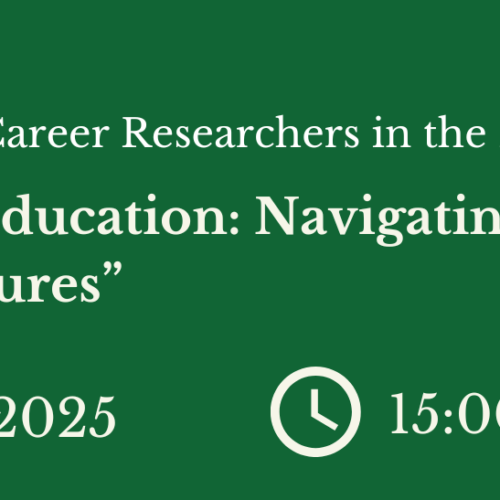Notre tout puissant Empire du milieu: histories of secondary education (2022 -2027)
Convenors: Luís Grosso Correia (Portugal), Felicitas Acosta (Argentina), Antonio Canales Serrano (Spain)
Histories of secondary education – Annual Report 2023
Histories of secondary education – Annual Report 2022
Description and Main Objectives: Palaestra, lyceum, cathedral grammar low school, collège, lycée, lycée polyvalent, institut, gymnasium, progymnasium, realschule, hautpschule, berufschule, grammar school, high school, modern school, comprehensive school, college, technical school, vocational school, secondary rural school, boarding school, liceo, instituto, bachillerato, colegio, liceu, escola técnica, escola média… These are all part of a wide range of expressions to designate the type of schooling that paved the historical evolution of secondary education, since Ancient Greece to the present day. Influenced by Plato and Isocrates, among many other philosophers, secondary education was conceived for many centuries as second-rate education behind university, with which it shared the same principles and values of knowledge, culture, and intervention in public life, central to the education of the male social elite. This conception of secondary education connected to the university model lasted with greater vitality until the early nineteenth century, despite some changes over time. For example, the late Middle Ages reshaped the ‘seven liberal arts’ (the ‘trivium’ of grammar, rhetoric, and dialectic, and the ‘quadrivium’ of geometry, arithmetic, astronomy, and music); from the sixteenth century onwards, ‘modern subjects’ (e.g., mathematics, natural sciences, vernacular languages) were integrated in this level of schooling by philosophers of the Renaissance Humanism and the Society of Jesus. This SWG intends to examine secondary education (or, according to Lucien Febvre, “notre tout puissant Empire du milieu”, 1939) in terms of specific historical contexts: its social and political mission, formative goals, curriculum organization, subjects taught, teaching methods, material structure and culture, teacher training, adolescence and youth supervision, among other issues. The topic demands attention for many reasons. In the first place, secondary education has been seen socially as “the survival of a conception of culture formulated when education was the right and possession of a few people” (Kandel, 1926, X), a situation that has completely changed. According to UNESCO, in 2020, the global enrolment rates surpassed 90% in primary education, 85% in lower secondary education, and 65% in upper-secondary education (UNESCO, 2021), whereas in the late 1950s, the same rates where about 21% in secondary education (UNESCO, 1963). These results show that there has been a clear decline in the share of out-of-school adolescents across the world over the past sixty years. Secondly, the utility of a curriculum or of intellectual training aimed almost entirely at middle-and upper-class adolescents has been questioned under the principles of democracy, equality, and education for all. Thirdly, bearing in mind the diversity of syllabi or educational tracks that were developed in Western countries from the mid-19th century onwards (see, for instance, the British tri-partite system of the mid-20th century), the relations established with new forms of social, economic, and labour organization require revision. Finally, given its intermediate 4 4 position, the connection with primary education output and higher education input derived from continuously increasing the years of compulsory education over the past century, has also changed secondary education into “basic” education. Moreover, the United Nations’ General Assembly declared quality secondary education for all at number 4 of its 2015 sustainable development goals (SDG4).
This SWG welcomes papers that address the following topics related to secondary education (including transversal approaches):
- Secondary education: what is in the name? – Historical circulation of discourses and practices connected to secondary education.
- Curriculum organization, tracks, teaching methods, assessment, and outcomes.
- Students, adolescence, and identity.
- Teachers, teacher education, and professional development.
- Social class, gender, ethnicity, equity, and empowerment.
- School types, facilities, and material culture.
- The role of secondary education in compulsory schooling and the relations with primary and higher education levels.
- Educational policies, international organizations and (comparative) perspectives related to secondary education.
- History of current issues regarding secondary education.
Keywords: History of education, secondary education, education policies, school tracks and institutions, teachers, curricula, students, adolescence, compulsory schooling, social justice, comparison, emancipation.
For additional information and to become involved, please contact the convenors: Luís Grosso Correia (Portugal), Felicitas Acosta (Argentina), Antonio Canales Serrano (Spain)


